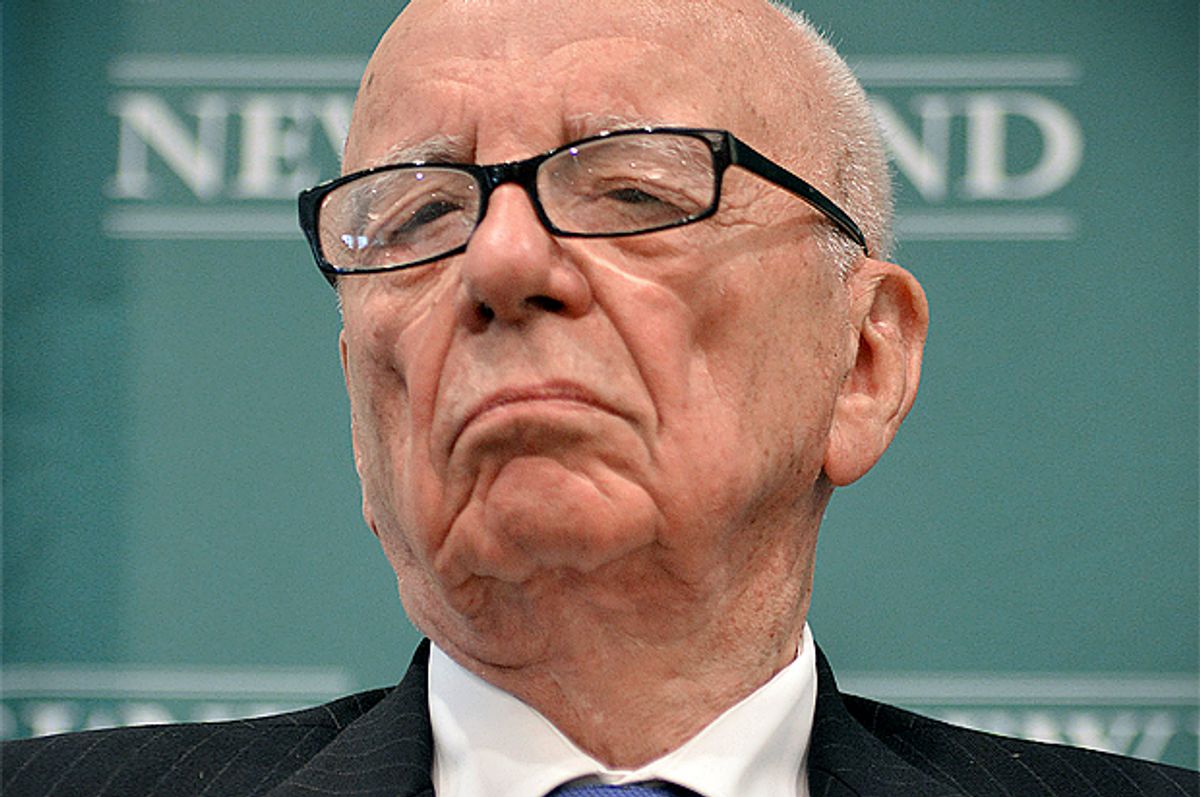The news that National Geographic has now been placed in the hands of Rupert Murdoch prompted a predictable outcry, roughly akin to what happens in the movies when the clearly evil tycoon takes the orphans away. A bastion of popular science is now controlled by a very prominent climate change denier who, despite his company's assurances of editorial integrity, has spent decades interfering with the independence of his properties. A tabloid king could now apply the values of the New York Post to one of the world's oldest magazines.
I'd be the last to tell anybody not to worry when Murdoch comes to town, but some of the agita missed the fact that National Geographic has had a long partnership with Murdoch's media empire, most notably through the Nat Geo TV channel. (You didn't think Nat Geo was airing all of those Bill O'Reilly documentaries because of their educational value, did you?) National Geographic may be sacrificing its non-profit status, but Wednesday's deal partially cemented what had already been put in place.
Still, that doesn't mean we shouldn't take anything away from how unsettling it feels to see a stalwart brand like National Geographic go down such a blatantly commercial path. It has whiffs of the creepiness that surrounded the announcement that HBO will now be the primary home for "Sesame Street." Both events highlighted the deplorable lack of a non-profit media infrastructure in the United States.
America spends a fraction of the money other industrialized countries do on public media. Networks like the BBC or CBC are far from perfect, but they have a commitment to public service broadcasting that puts American networks to shame. PBS, a mere minnow in this universe, still produces programs on art, science and history that would never make it onto a broadcast network. If you want anything beyond weather reports, top 40 and horrible people discussing sports, public radio is pretty much the only game in town.
Of course, public media in and of itself is not the answer. The news that PBS or NPR produce, for instance, is often as bland and corporate-friendly as the news on any of its rivals, and public broadcasters are often subject to government pressure. But it's noteworthy that PBS's biggest troubles have inevitably come from the compromises it has made with business interests in an effort to secure more funding.
There are those who point to cable, with its hundreds of channels, and say it negates the need for more public broadcasting, but that ignores history. Look at the History Channel, or Bravo, or A&E, or TLC. All of them started out doing very worthy things. Then they realized there was more money in moving downmarket. Now, History does lots of reality shows about loggers, and while Andy Cohen is definitely providing a needed public service, it's pretty clear that his stuff would be out of place on PBS.
I'm not against any of these channels. Who doesn't love Bravo? But it's a problem when one beloved public or non-profit institution after another throws up its hands and decides it has to go corporate. More to the point, "Sesame Street" was only able to thrive because it came about during the relatively brief period when the government was actively behind the expansion of public broadcasting. If we don't figure out how to give more support to public and non-profit media, there's no guarantee that the next "Sesame Street"—or, for that matter, the next National Geographic—will even get off the ground.


Shares